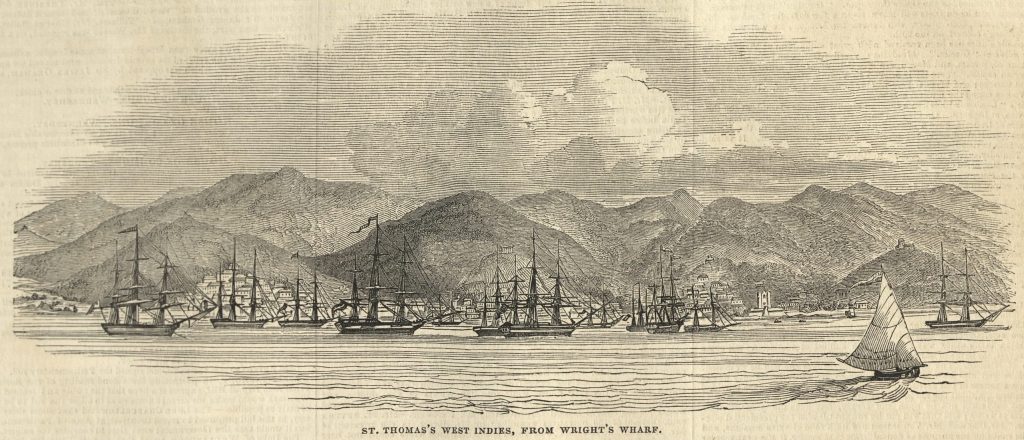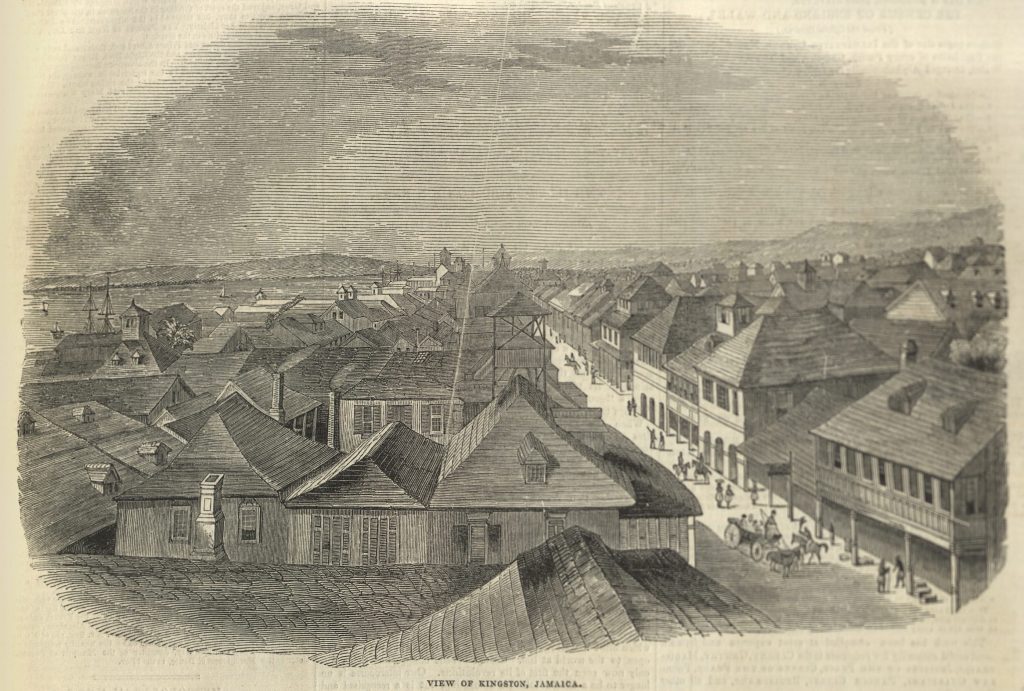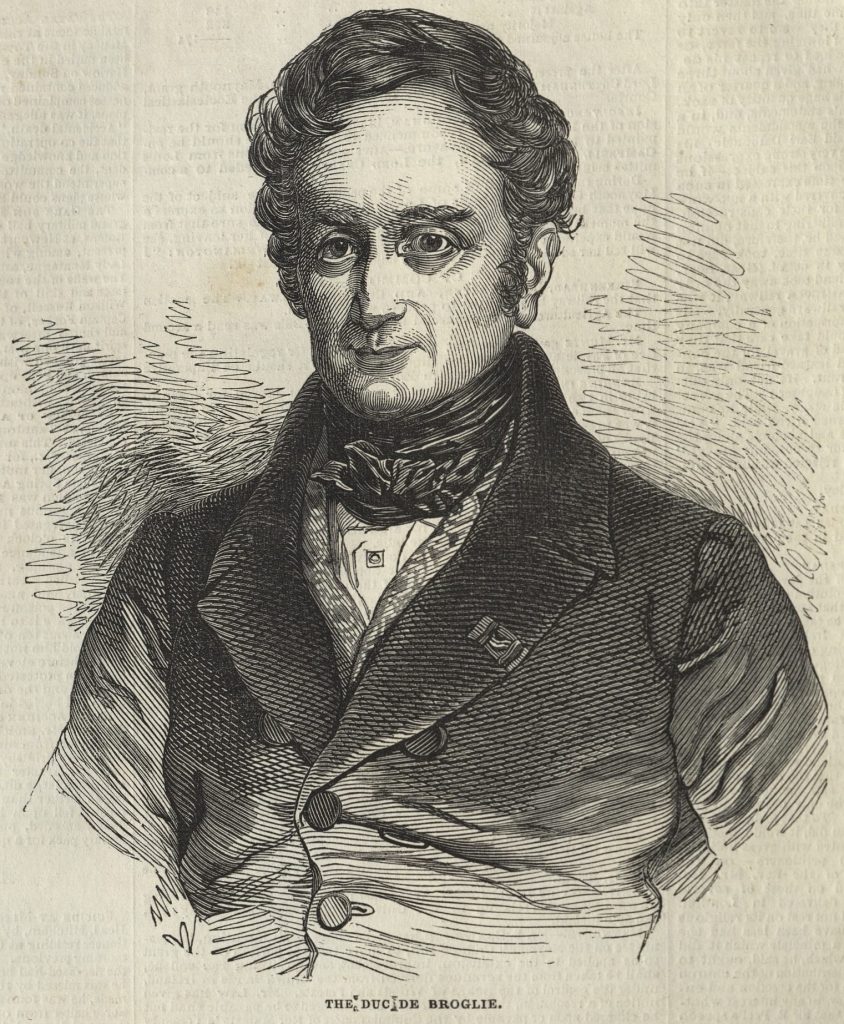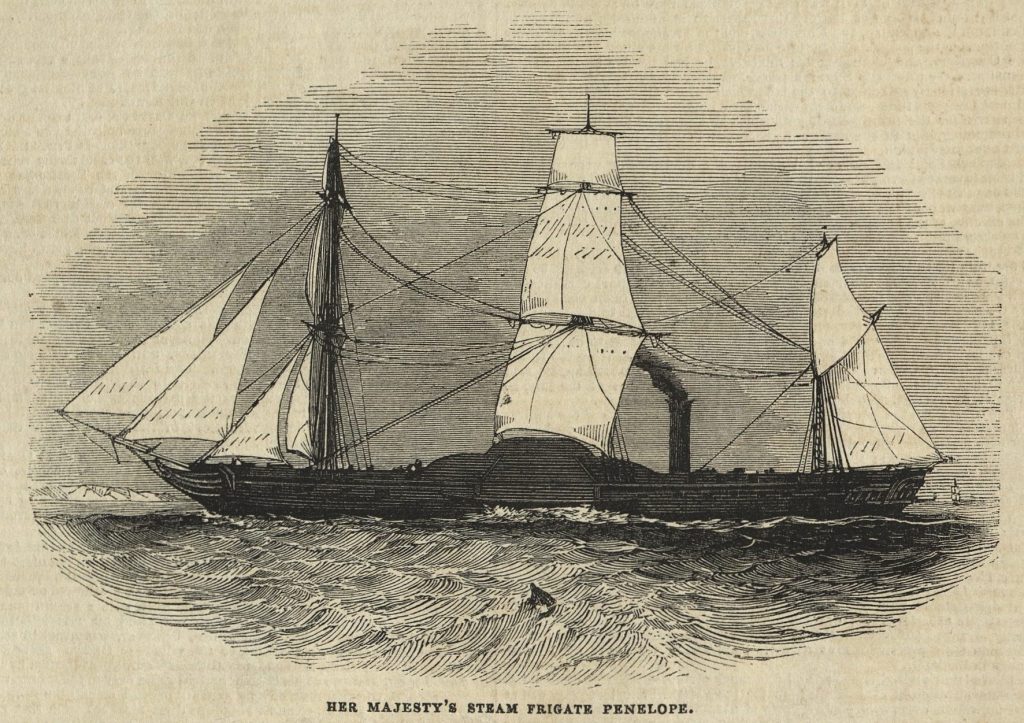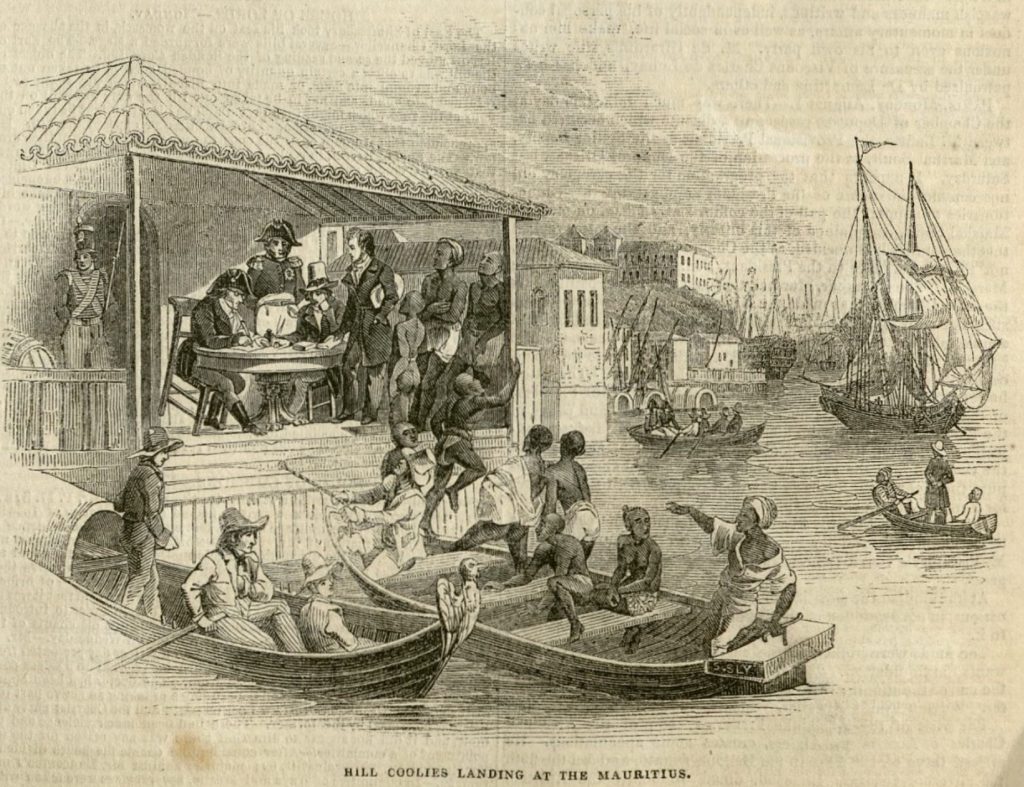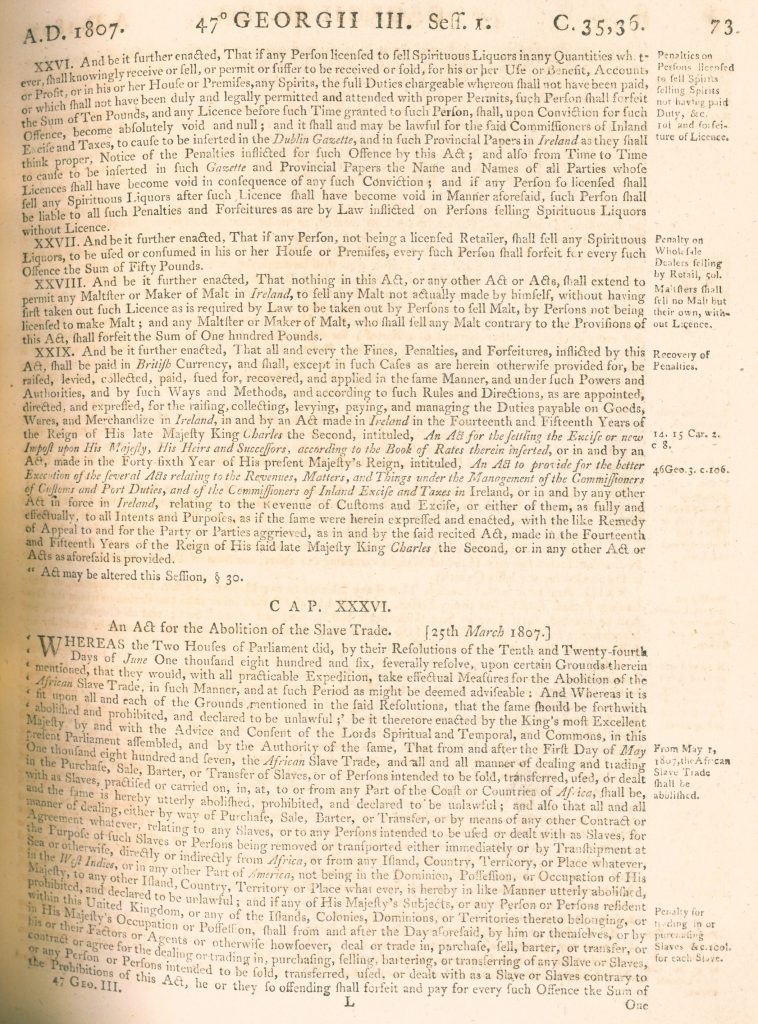St. Thomas was a Danish plantation colony in the West Indies. It had been captured by the British during the Napoleonic Wars, but was returned to Denmark during the Nineteenth Century. The Illustrated London News, 18 May 1844. Courtesy of University of Missouri Libraries.
Read More
Before 1807, when the British slave trade was still legal, Kingston was an important port of slave disembarkation in the West Indies. However, since the beginning of the suppression campaign, the port served as a seat for one of the international courts responsible for adjudicating ships accused of transporting slaves illegally. The following image shows […]
Read More
The Duc de Broglie, was a French Foreign Minister under the ‘July Monarchy’ of Louis Phillipe. He played a central role in the bilateral negotiations with Britain for the suppression of the slave trade during the 1840s. The Illustrated London News, 26 April 1845. Courtesy of University of Missouri Libraries.
Read More
The suppression of the African slave trade required the use of significant naval power. The following image shows one of the British man of war deployed in the campaign, the H.M.S. Frigate Penelope. The Illustrated London News, 1 July 1843. Courtesy of University of Missouri Libraries.
Read More
After the abolition of slavery in British colonies, indentured servants were brought in from India and China to serve in the plantation colonies of Maritius and the West Indies. Some argued that this was simply a ‘New system of slavery’, but the system was eventually permitted to expand. The Illustrated London News, 6 August 1842. […]
Read More
The Slave Trade Act of 1807 prohibited British ships from engaging in “the African slave trade, and all manner of dealing and trading in the Purchase, Sale, Barter, or Transfer of Slaves, or of Persons intended to be sold, transferred, used, or dealt with as Slaves, practiced or carried on, in, at, to or from […]
Read More

